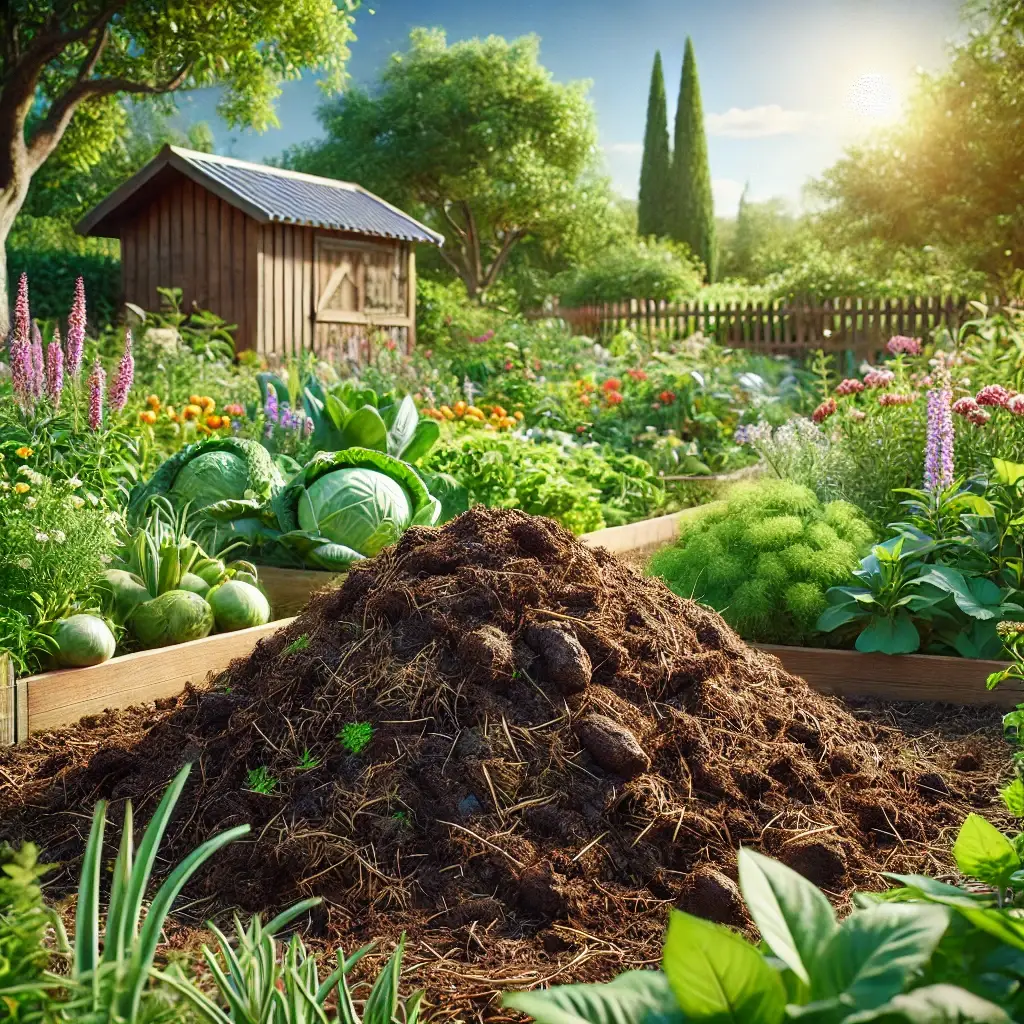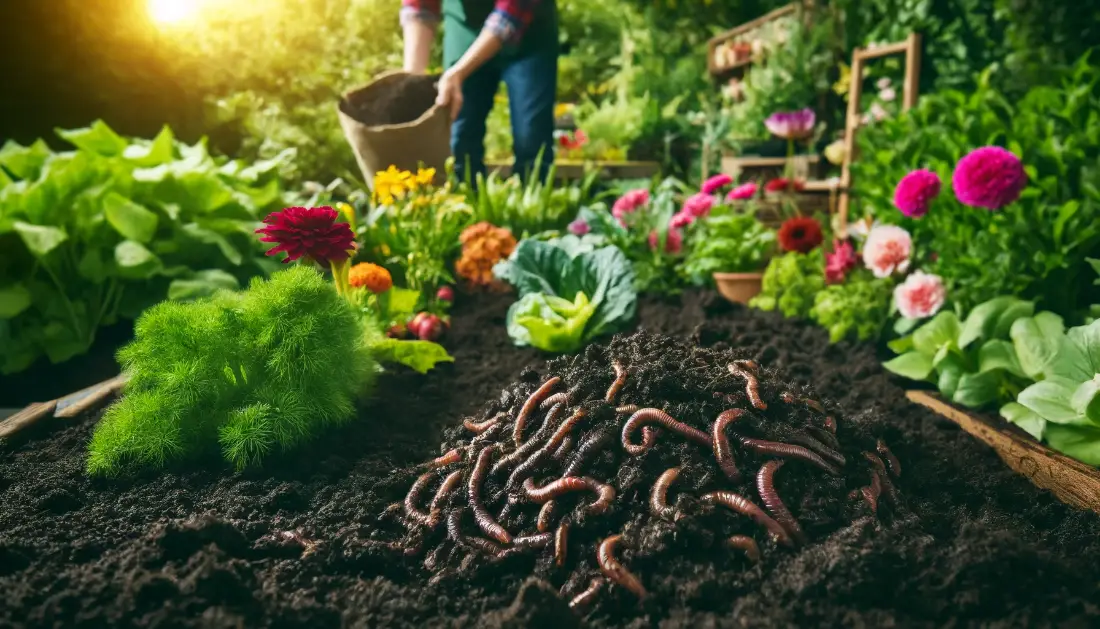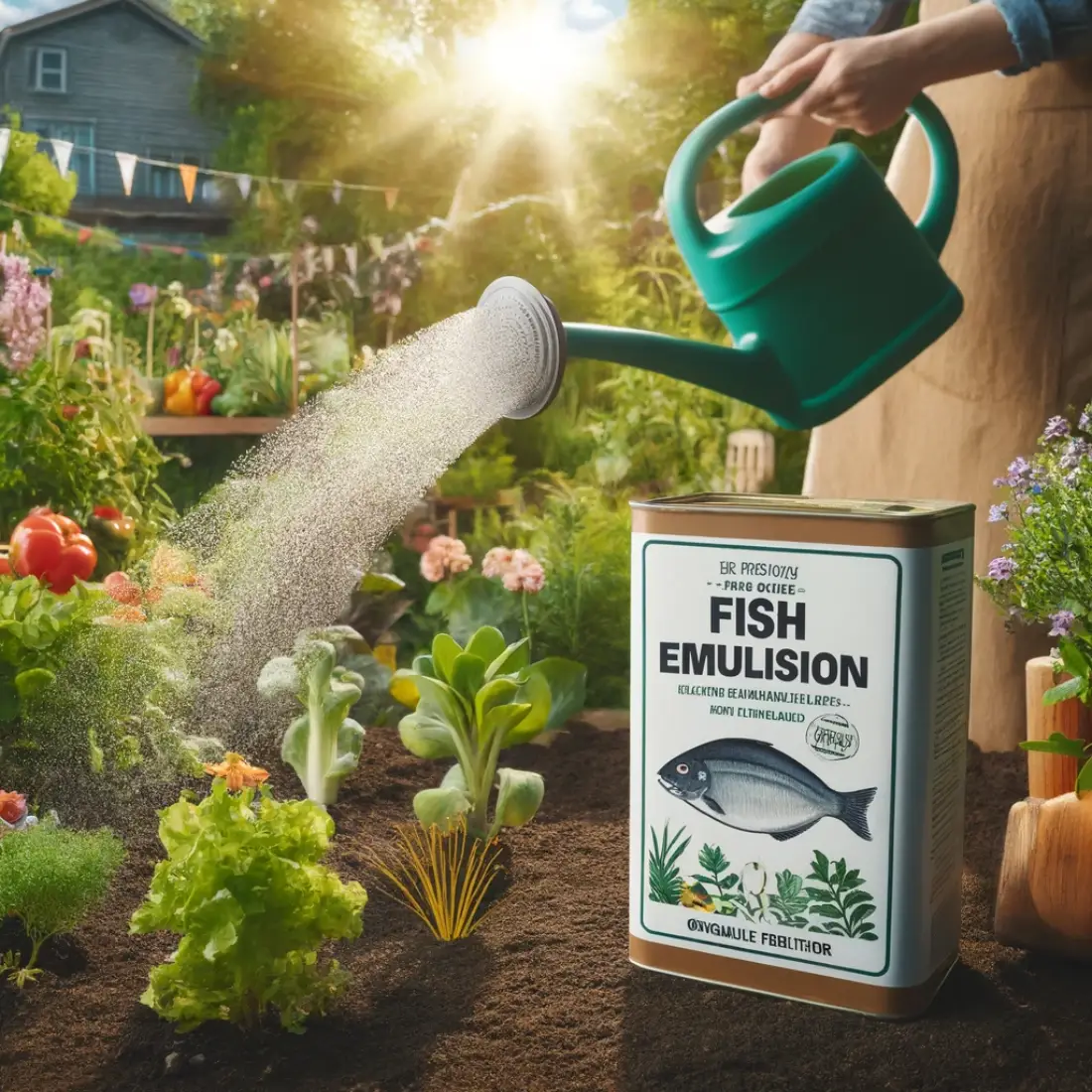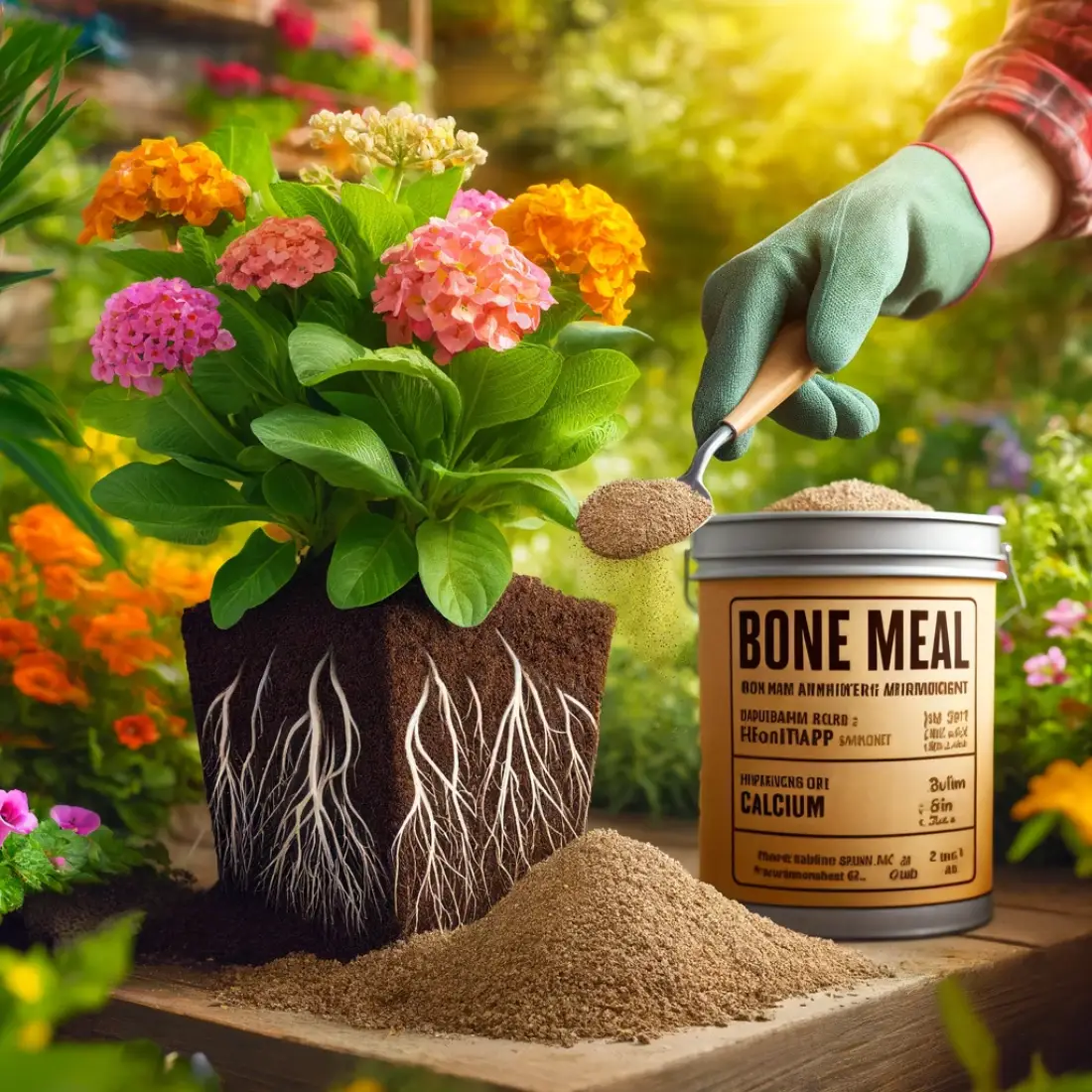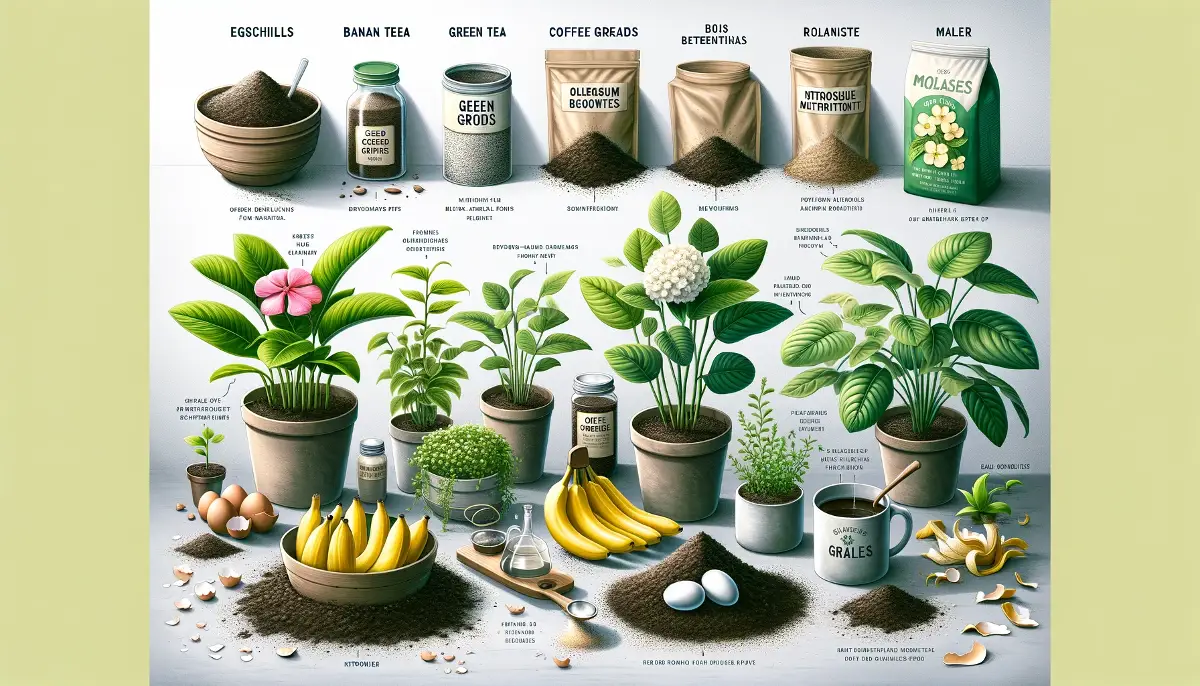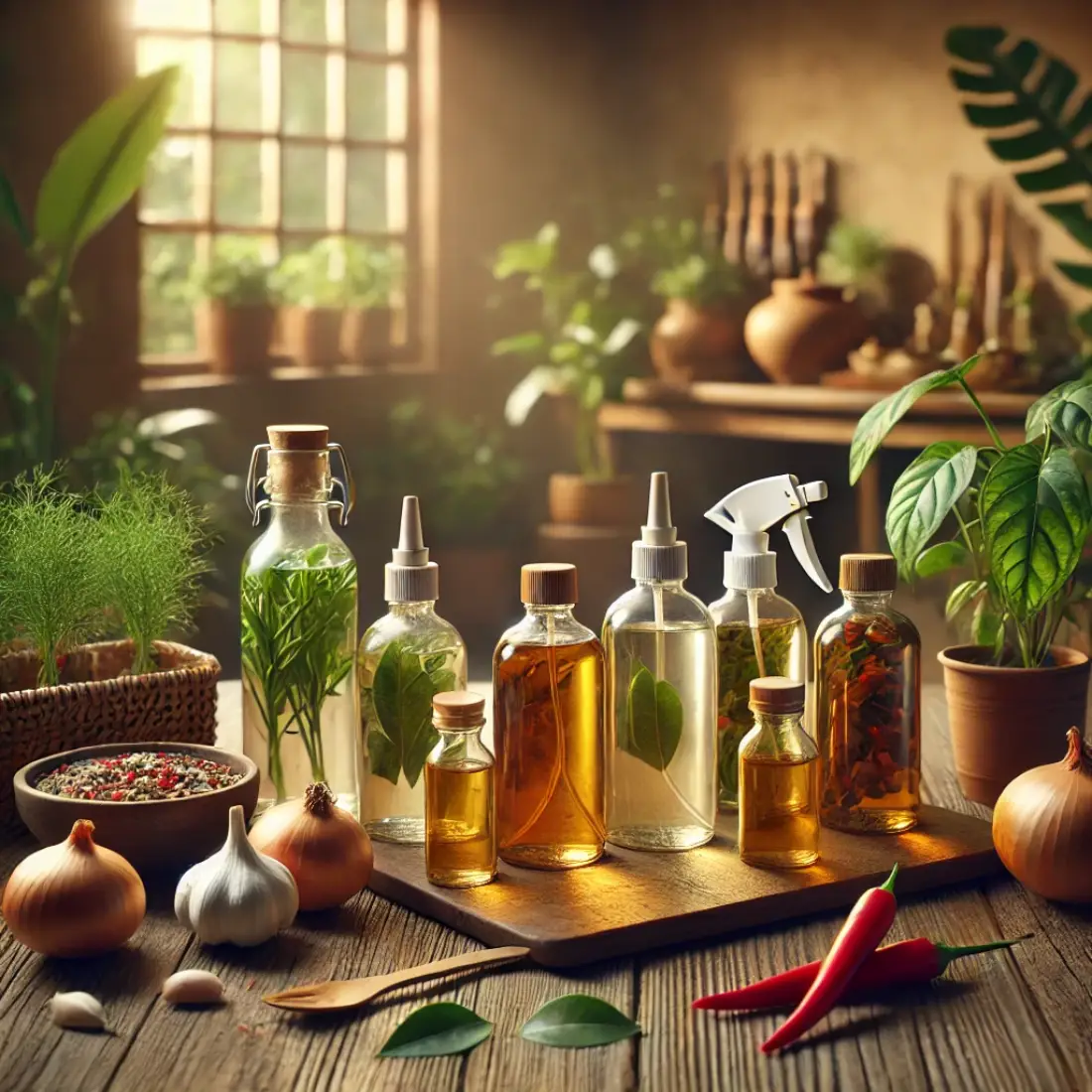Growing cucumbers successfully requires more than just sunlight and water, the right nutrients are essential for robust growth and bountiful harvests. While synthetic fertilizers can provide a quick nutrient boost, organic fertilizers offer a sustainable and environmentally friendly alternative that enriches the soil and enhances plant health over time.
- Organic fertilizers provide essential nutrients for cucumber plants, promoting healthy growth and higher yields.
- The top 5 organic fertilizers include compost, aged manure, worm castings, fish emulsion, and bone meal—each with unique benefits.
- Regular use of these fertilizers improves soil structure, moisture retention, and overall plant health, ensuring thriving cucumber plants.
- Understanding the timing and methods of application is crucial for maximizing the benefits of organic fertilizers.
- Combining different organic fertilizers can offer a balanced nutrient supply, enhancing cucumber growth throughout the season.
Key Nutrients Required by Cucumber Plants
Cucumber plants need a balanced supply of key nutrients to thrive. Nitrogen (N) is essential for leafy growth, promoting vigorous vines and healthy foliage. Phosphorus (P) supports strong root development and helps cucumbers set flowers and fruit. Potassium (K) is crucial for overall plant health, improving fruit quality and disease resistance.
Additionally, cucumbers require micronutrients like calcium, magnesium, and iron to prevent deficiencies that can stunt growth or reduce yield. Ensuring a steady supply of these nutrients through organic fertilizers is vital for growing robust and productive cucumber plants.
Top 5 Organic Fertilizers for Thriving Cucumber Plants
1. Compost
Compost is a nutrient-rich organic matter that improves soil structure, increases water retention, and provides a balanced supply of essential nutrients like nitrogen, phosphorus, and potassium.
It’s easy to make at home by decomposing kitchen scraps, garden waste, and other organic materials. When added to cucumber plants, compost enhances soil fertility, boosts microbial activity, and supports healthy plant growth throughout the growing season.
2. Aged Manure
Aged manure, from sources like cows, chickens, or horses, is a potent organic fertilizer packed with nutrients, especially nitrogen. Unlike fresh manure, aged manure has decomposed, reducing its odor and making it safer for plants. When applied to cucumber plants, it enriches the soil, encourages vigorous vine growth, and improves fruit production. It also adds organic matter to the soil, improving its texture and moisture-holding capacity.
3. Worm Castings
Worm castings, also known as vermicompost, are a nutrient-dense fertilizer produced by earthworms. Rich in nitrogen, phosphorus, and potassium, worm castings enhance soil aeration and water retention while providing a slow-release nutrient source.
They also contain beneficial microbes that help suppress plant diseases and improve overall plant health. Applying worm castings to cucumber plants encourages strong root development and supports continuous, healthy growth.
4. Fish Emulsion
Fish emulsion is a liquid organic fertilizer made from processed fish parts. It is high in nitrogen and provides a quick nutrient boost to cucumber plants, promoting rapid leafy growth. In addition to nitrogen, fish emulsion contains trace minerals that support overall plant health.
It is best applied during the early stages of growth or when plants need a nutrient boost. Fish emulsion is easy to apply and can be diluted in water for foliar feeding or soil drenching.
5. Bone Meal
Bone meal is an excellent source of phosphorus and calcium, crucial for root development and flowering in cucumber plants. Derived from ground animal bones, this organic fertilizer provides a slow-release form of phosphorus, supporting the long-term health of the plants.
Bone meal is particularly beneficial when planting cucumbers, as it helps establish strong roots and promotes abundant flowering, leading to a higher yield of cucumbers.
How to Apply Organic Fertilizers for Best Results
Timing and Frequency of Fertilization
Proper timing is crucial for maximizing the benefits of organic fertilizers on cucumber plants. Start by incorporating compost or aged manure into the soil before planting to enrich the soil with nutrients. During the growing season, apply fertilizers like fish emulsion or worm castings every 2-3 weeks to support ongoing growth.
Bone meal should be added at the time of planting to promote root development, with additional applications as needed during flowering. Fertilize in the morning or late afternoon to avoid the heat of the day, which can cause nutrient loss.
Application Methods for Maximum Yield
Different organic fertilizers require different application methods for best results. Compost and aged manure are best applied as a top dressing or mixed into the soil around the base of the plants. Worm castings can be sprinkled directly onto the soil surface or mixed with water for a nutrient-rich tea.
Fish emulsion should be diluted with water and applied as a foliar spray or soil drench, providing a quick nutrient boost. Bone meal is best worked into the soil at planting time, near the root zone, to ensure it’s available to the developing roots.
Combining Organic Fertilizers for Balanced Nutrition
For optimal growth, consider combining different organic fertilizers to provide a balanced nutrient supply. For example, use compost for overall soil health, fish emulsion for quick nitrogen boosts, and bone meal for steady phosphorus. Rotate the use of these fertilizers to prevent nutrient imbalances and avoid over-fertilization.
Combining and rotating fertilizers also ensures that cucumber plants receive a continuous supply of essential nutrients, leading to robust growth, higher yields, and improved resistance to pests and diseases.
FAQs about Organic Fertilizer for Cucumber Plants
Can I use organic fertilizers for container-grown cucumbers?
Yes, organic fertilizers are excellent for container-grown cucumbers. They improve soil quality and provide a steady release of nutrients, ensuring your cucumbers grow healthy and strong. Just be mindful of the quantity, as containers can retain nutrients differently than garden soil.
How can I tell if my cucumbers need more fertilizer?
Signs that cucumbers need more fertilizer include yellowing leaves, slow growth, and reduced fruit production. If your plants show these symptoms, consider applying a balanced organic fertilizer to boost nutrient levels.
Is it possible to over-fertilize with organic fertilizers?
Yes, over-fertilizing with organic fertilizers can still happen, leading to nutrient imbalances or even harming plants. Always follow recommended application rates and monitor your plants’ response to avoid over-fertilization.
Can I combine two organic fertilizers in one application?
Yes, combining organic fertilizers is possible and often beneficial. For example, using compost with bone meal can provide a balanced nutrient mix. However, make sure the combination doesn’t lead to nutrient overload, and adjust quantities accordingly.
What’s the best organic fertilizer for cucumber seedlings?
Compost or worm castings are ideal for cucumber seedlings. These gentle fertilizers provide the necessary nutrients without overwhelming young plants, promoting strong early growth.
How often should I apply organic fertilizers to my cucumber plants?
Typically, organic fertilizers should be applied every 2-3 weeks during the growing season. However, frequency can vary depending on the fertilizer type and plant needs, so adjust based on your cucumbers’ growth and health.
Can I make my own organic fertilizer for cucumbers?
Yes, you can create homemade organic fertilizers using kitchen scraps, yard waste, or composted manure. These DIY options are cost-effective and can be tailored to your garden’s specific needs.
What should I avoid when using organic fertilizers on cucumbers?
Avoid applying fertilizers too close to the plant stems, as this can cause root burn. Also, don’t over-apply fertilizers, especially those high in nitrogen, as it can lead to excessive leaf growth at the expense of fruit production.
Can I use fish emulsion on flowering cucumber plants?
Yes, fish emulsion can be used on flowering cucumber plants, but apply it sparingly to avoid promoting too much leafy growth at the expense of flowers. It’s best used earlier in the growing season or in diluted form during flowering.
How do organic fertilizers improve soil health for cucumbers?
Organic fertilizers enhance soil health by adding organic matter, improving soil structure, and increasing microbial activity. This creates a more fertile environment for cucumbers, leading to better water retention, nutrient availability, and overall plant health.




